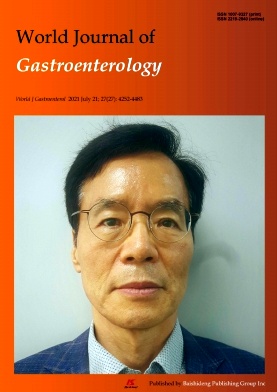Colon cancer-associated B2 Escherichia coli colonize gut mucosa and promote cell proliferation
摘要:
AIM:To provide further insight into the characterization of mucosa-associated Escherichia coli(E.coli)isolated from the colonic mucosa of cancer patients.METHODS:Phylogroups and the presence of cyclomodulin-encoding genes of mucosa-associated E.coli from colon cancer and diverticulosis specimens weredetermined by PCR.Adhesion and invasion experiments were performed with I-407 intestinal epithelial cells using gentamicin protection assay.Carcinoembryonic antigen-related cell adhesion molecule 6(CEACAM6)expression in T84 intestinal epithelial cells was measured by enzyme-linked immunosorbent assay and by Western Blot.Gut colonization,inflammation and procarcinogenic potential were assessed in a chronic infection model using CEABAC10 transgenic mice.Cell proliferation was analyzed by real-time mRNA quantification of PCNA and immunohistochemistry staining of Ki67.RESULTS:Analysis of mucosa-associated E.coli from colon cancer and diverticulosis specimens showed that whatever the origin of the E.coli strains,86%of cyclomodulin-positive E.coli belonged to B2 phylogroup and most harbored polyketide synthase(pks)island,which encodes colibactin,and/or cytotoxic necrotizing factor(cnf)genes.In vitro assays using I-407 intestinal epithelial cells revealed that mucosa-associated B2 E.coli strains were poorly adherent and invasive.However,mucosa-associated B2 E.coli similarly to Crohn's disease-associated E.coli are able to induce CEACAM6expression in T84 intestinal epithelial cells.In addition,in vivo experiments using a chronic infection model of CEACAM6 expressing mice showed that B2 E.coli strain11G5 isolated from colon cancer is able to highly persist in the gut,and to induce colon inflammation,epithelial damages and cell proliferation.CONCLUSION:In conclusion,these data bring new insights into the ability of E.coli isolated from patients with colon cancer to establish persistent colonization,exacerbate inflammation and trigger carcinogenesis.
展开
DOI:
10.3748/wjg.v20.i21.6560
被引量:
年份:
2014
相似文献
参考文献
引证文献
辅助模式
引用
文献可以批量引用啦~
欢迎点我试用!



